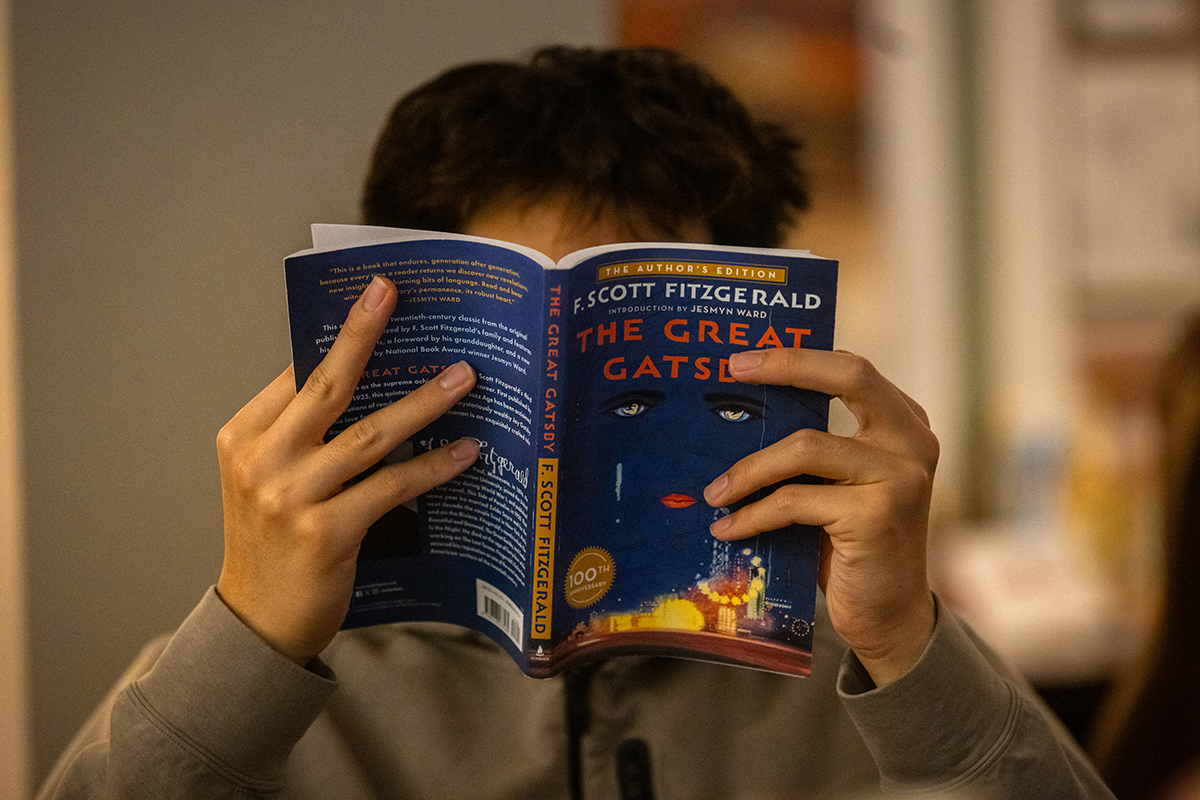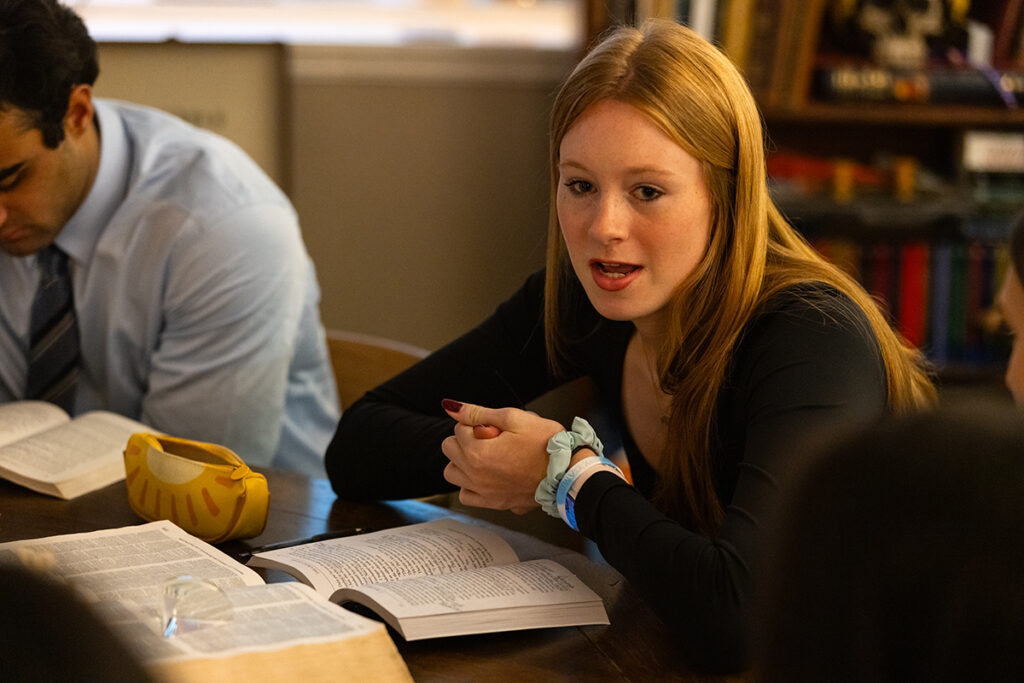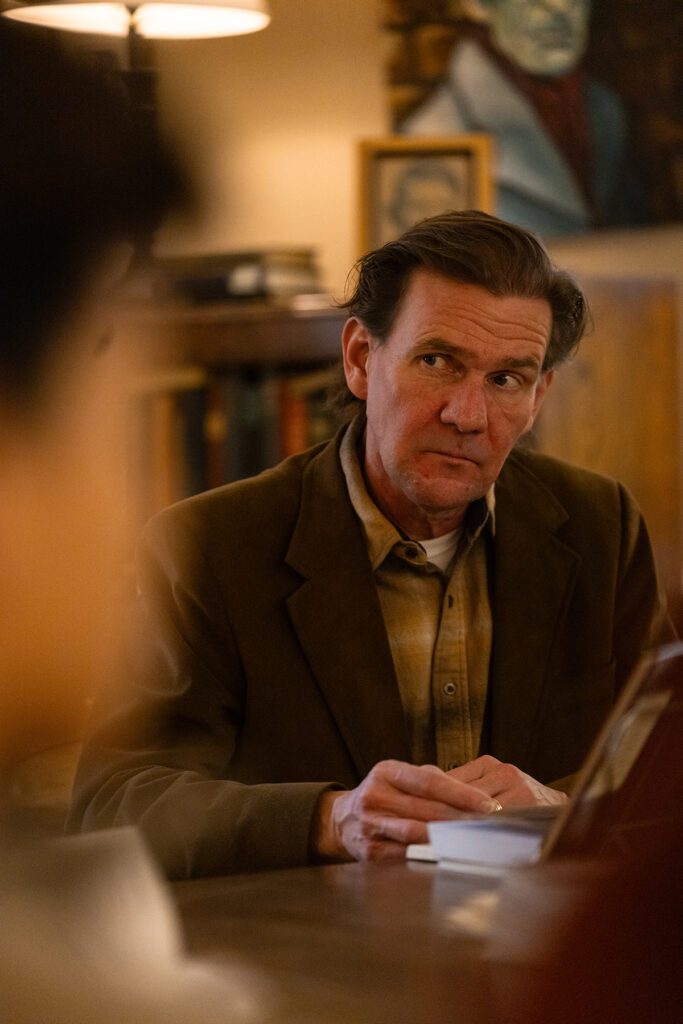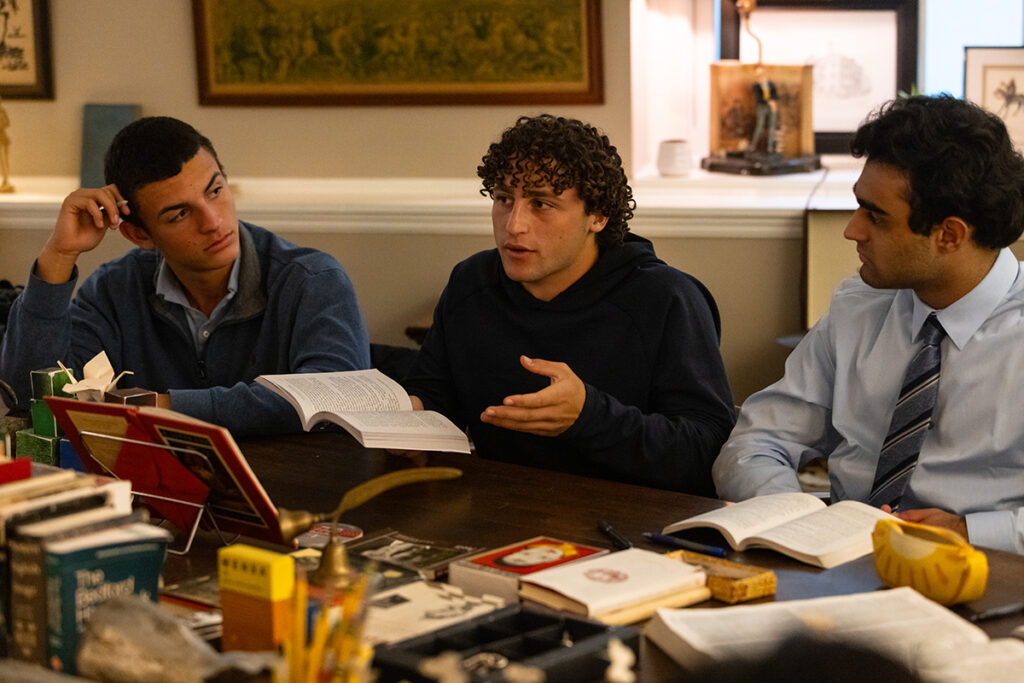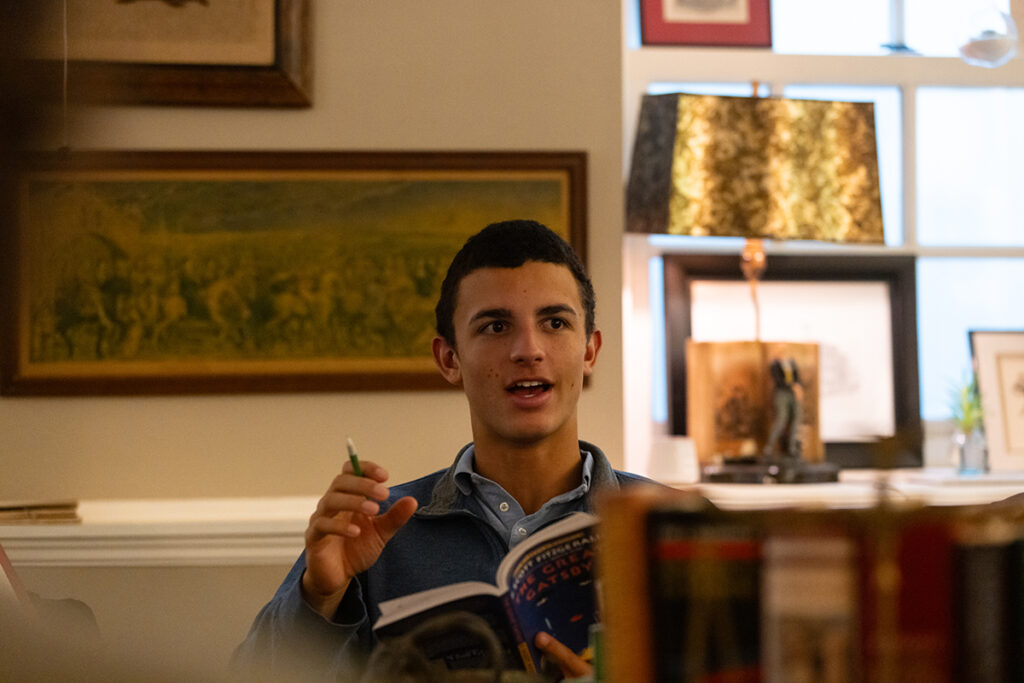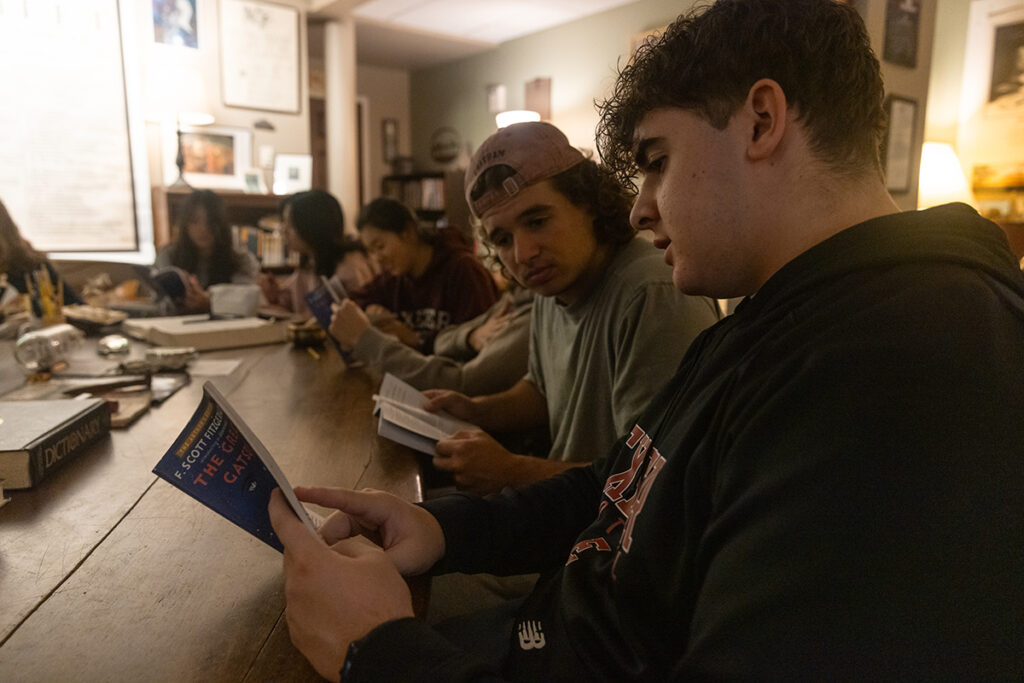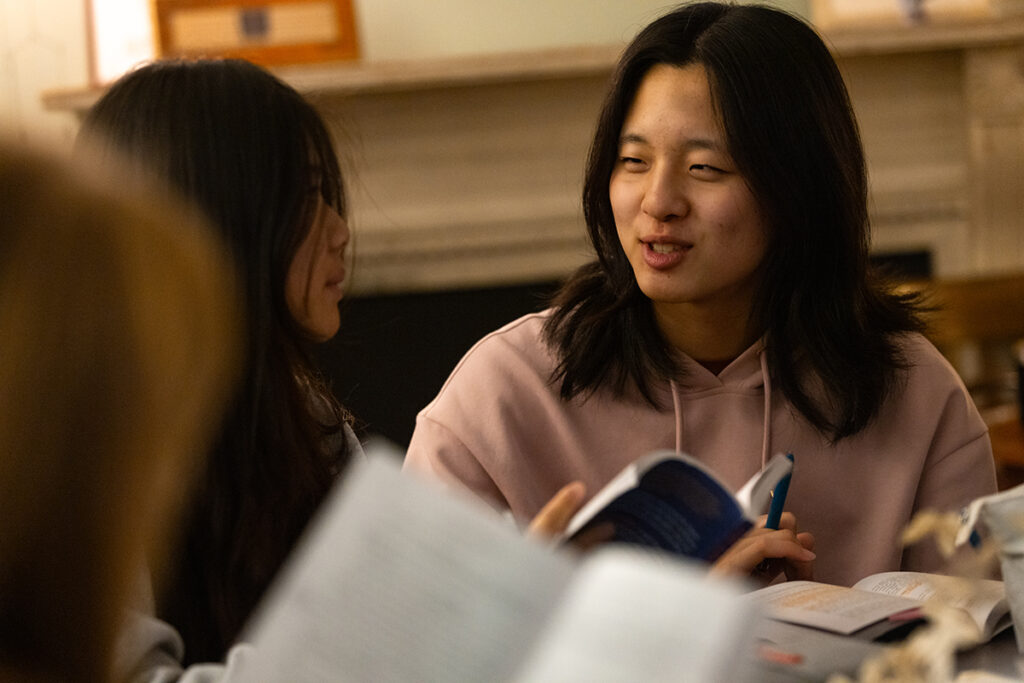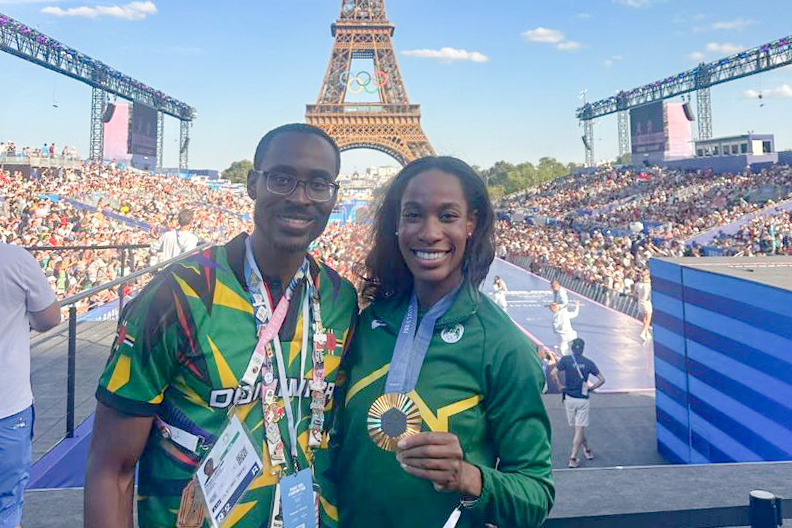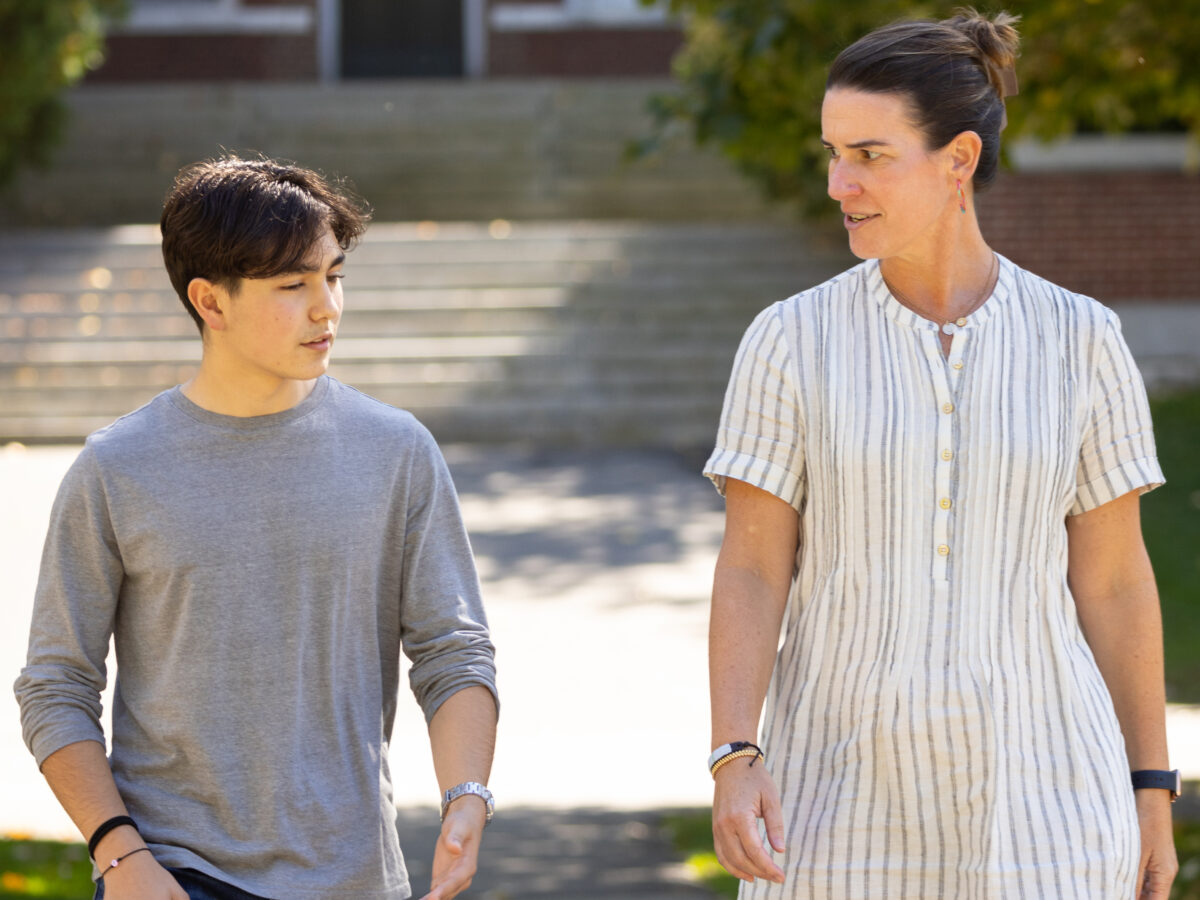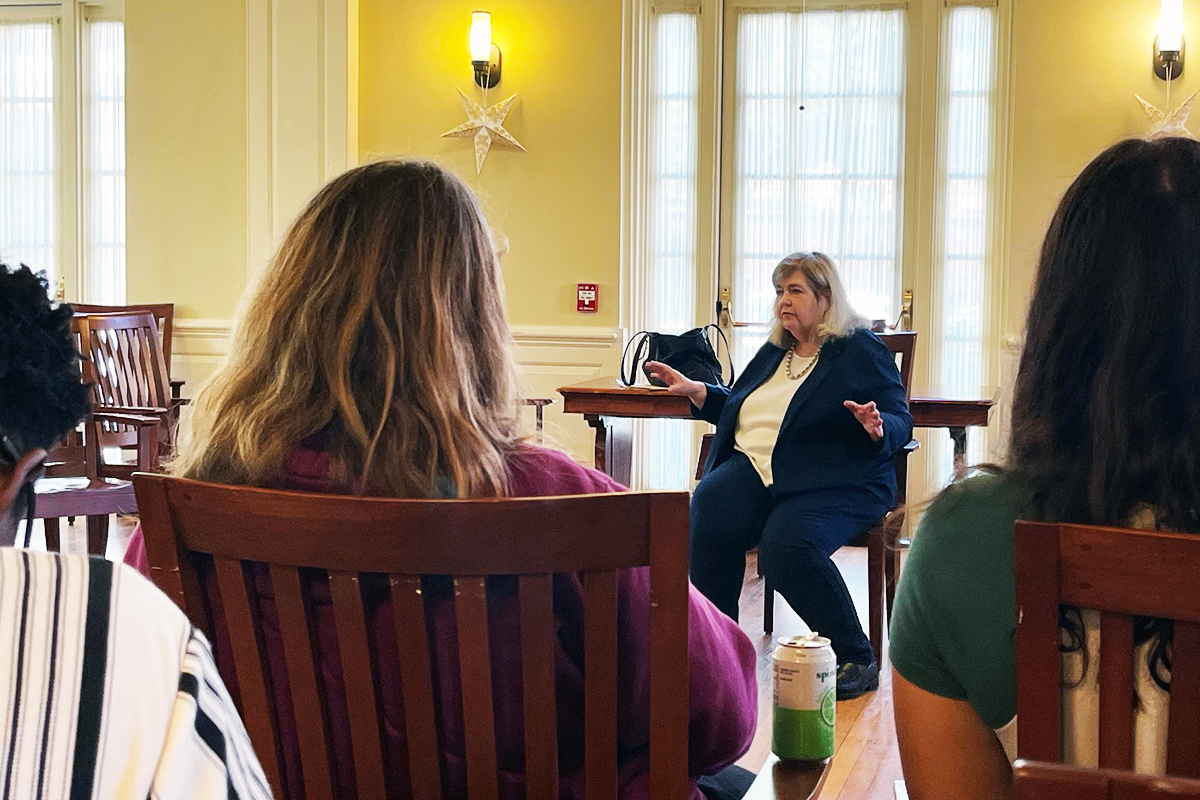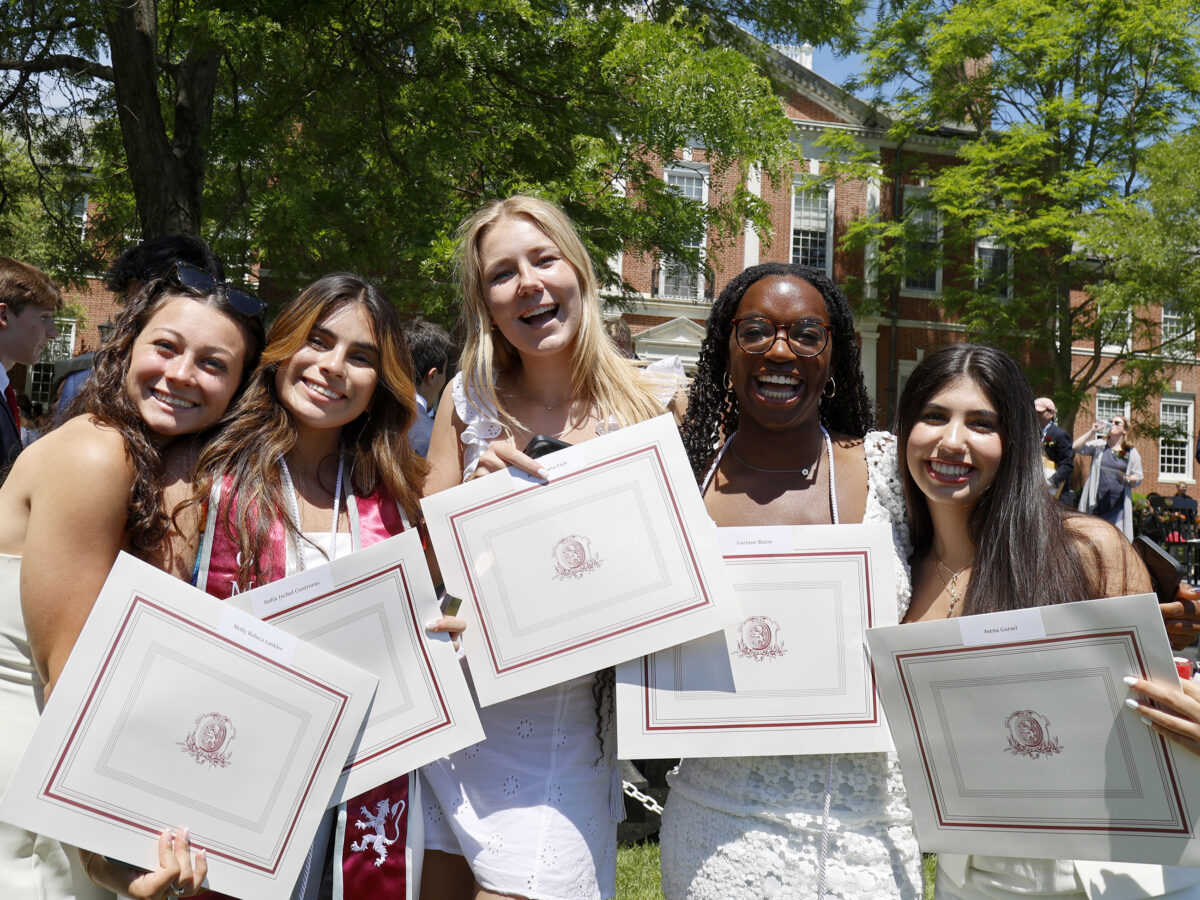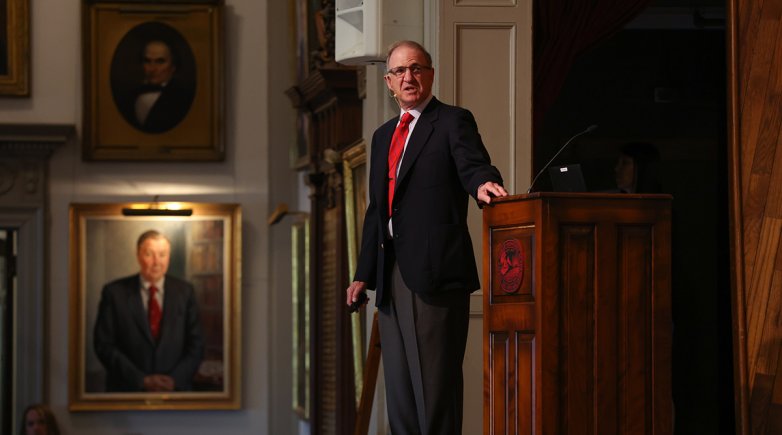Exeter Salutes honors active duty and veteran members of the community
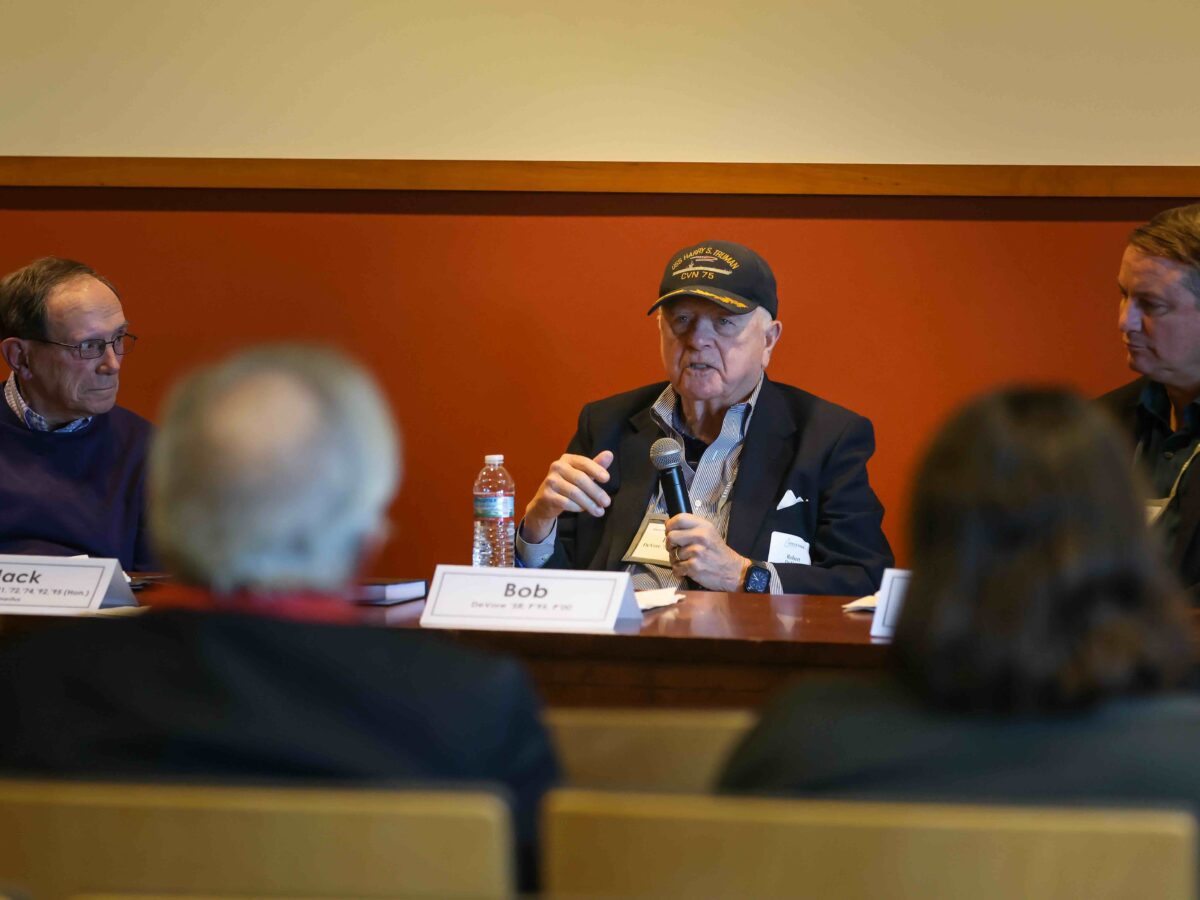
The two-day event celebrated members of the Exeter community who have served or are currently serving in the armed forces of the United States.
Every year, around Veterans Day, Exeter Salutes celebrates faculty, staff, alumni and their family members who have served or are currently serving in the U.S. military. This year was no different with two days of programming that included guest speakers, panels and the chance for the alums to spend time with current students.
The celebration kicked off on Thursday with a virtual panel of young alums detailing their time since leaving the Academy. With their Exeter experience still fresh in their minds, featured speakers Layne Erickson ’18, Cooper Walshe ’21 and Ursula Wise ’21 detailed how the Academy prepared them for life in the military. “A lot of my peers there in my plebe year were really overwhelmed by the amount of work,” Erickson said. “Academically [Exeter] set me up to be very, very successful.”
Friday morning’s assembly speaker Caleb Hoffman Johnson ‘09 delivered a captivating address focused on the core Exeter value of non sibi, or “not for one’s self.” He started with a confession to the student audience.
“When I was your age … I was non sibi agnostic, I had no real concept of non sibi and the culture of this community,” said Hoffman who attended Exeter for a post-grad year. “What non sibi meant to me when I was here and what it means to me now are two very different things,”
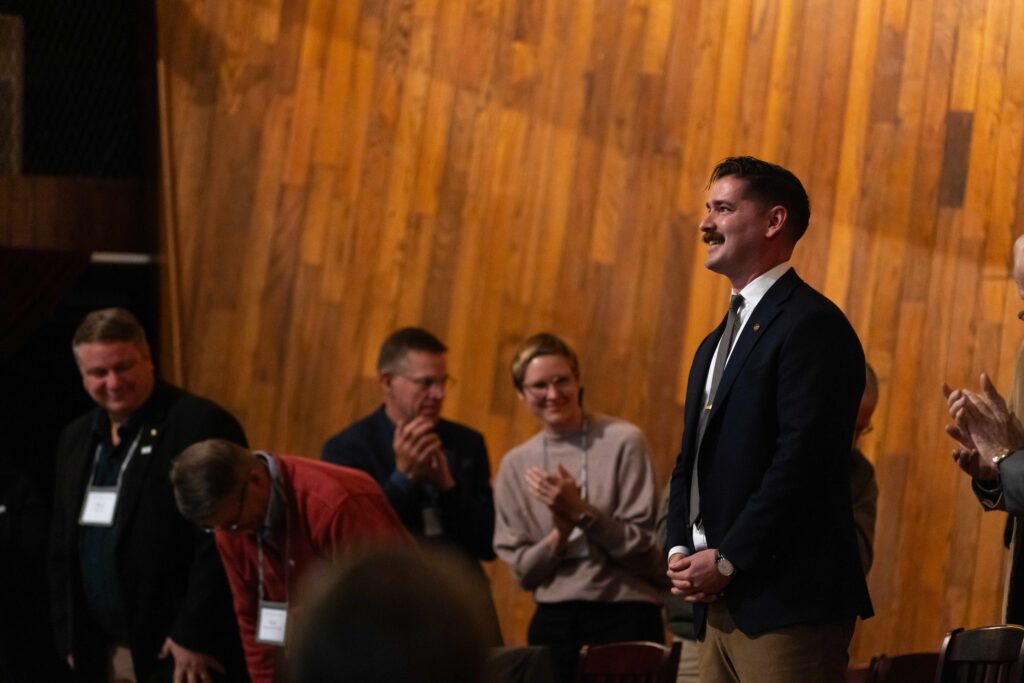
Inspired by his grandfathers’ service and yearning for a challenge, Hoffman Johnson joined The Marine Corps after attending Williams College. With reflection in his years following Exeter he said he grew to understand the importance of non sibi in his military career. “As an officer you measured by the capabilities of your subordinates, that is non sibi.”
The programing continued in the afternoon with back-to-back panels in The Forum.
Moderator Jack Herney ’46,’69,’72,’72,’74,’92,’95 (Hon.) emeritus led a panel titled “Lessons Learned” consisting of panelists Bob DeVore ’58; P’95, P’00, Steve Parker ’63, Rich Rowe ’69 P’94, P’02 and David Heist ’92. Heist drew parallels from his time in the service and his years at Exeter. “I really enjoyed the camaraderie that you can get in the dorms … that can be replicated in the military, those late nights of staying up studying or working,” he said.
The programming continued with a panel hosted by Assistant Principal Karen Lassey P’14, P’16, P’18 with featured speakers: Ken Swanberg ’59, Nat Butler ’64, Wick Sloane ’71; P’03, Jeff Eggers ’89, P’28, Lindsey Wetzel ’92 and Miller Pearsall ’96 with discussion around the panelists’ unique paths to military service before all the invitees joined students for dinner to conclude the festivities.
